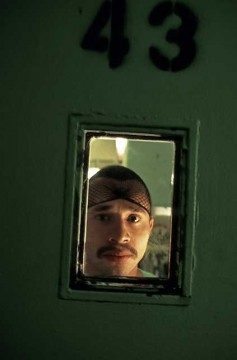Three strikes and you’re out applies to more than baseball. In the popular US sport failure to hit the ball on the third try means you are out of the inning. The tough new mandatory sentencing laws–known as three strikes–are meant to target violent repeat offenders. But the three strikes law in effect in California can put a shoplifter or petty drug dealer in prison for 25 years to life. Are these sentences proportionate to the crimes or could they be considered cruel and unusual punishment?
Mandatory sentencing takes discretion away from the judge. It means a one size fits all form of applying penalties to those convicted of three felonies. The underlying idea of this tougher sentencing law is that anyone who has committed two felonies is chronically criminal and must be isolated from society.
These laws have been criticized in the United States and by International legal experts and human rights advocates for treating lesser crimes like drug possession or shoplifting as equivalent to violent crimes like murder. Some criminal justice experts believe this is counterproductive serving to turn delinquent youths who might “mature out” of gangs into hardened criminals with nothing to lose.
Another impact of the law has been increasingly skewed spending in favor of prisons over education. Between 1985 and 2000 the rate of spending on prisons in California rose at 15 times the rate of spending on all higher education.
Links:
- Wikipedia on Three Strikes laws.
- New Jersey Bar Association’s page, on Three Strikes laws.
- More facts about Three Strikes laws.
- Justice Policy Institute report: Cellblocks or Classrooms.
